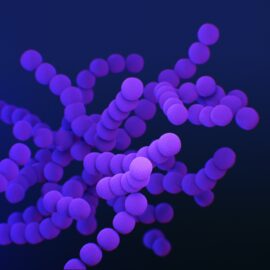
This is a free excerpt from one of Shortform’s Articles. We give you all the important information you need to know about current events and more.
Don't miss out on the whole story. Sign up for a free trial here .
Do green tea and matcha make you lose weight? What are the health effects of drinking green tea daily? Are there any risks?
Green tea and matcha are taking over the internet due to their apparent weight loss benefits. While green tea does boast many benefits, there are some health concerns that arise if you drink it in excess or take it as a supplement.
Here’s a look at the pros and cons of green tea and matcha.
Is the Green Tea Trend Worth the Hype?
“Nature’s Ozempic” is the latest buzzword on TikTok, but this time, it’s not about a vitamin, or a supplement, or a superfood: It refers to your morning cup of green tea. As wellness enthusiasts swap their coffee for matcha lattes and steep their way to supposed weight loss, social media is ablaze with claims about green tea’s metabolism-boosting powers.
Experts say that while green tea does contain compounds that may support metabolic health, the reality is more nuanced than viral videos might suggest.
The Science of Green Tea
Before we jump into the pros and cons of green tea, it’s important to understand the difference between green tea and matcha. Green tea and matcha come from the same type of plant, but there are a few differences in the growing and preparation processes. Without getting into the weeds too much, green tea is made using whole, dried leaves while matcha uses the leaves ground into a very fine powder.
While green tea and matcha may be trending on social media, these teas have a long history in Asia. From Chinese monasteries to Japanese tea houses, green tea has played a central role in promoting physical health and mental clarity. Beyond its potential physical health effects, green tea has also been embraced as a means of promoting overall well-being and balance.
The Benefits of Green Tea
Modern research is now validating what traditional cultures have long believed: Green tea’s bioactive compounds—particularly antioxidant compounds called catechin—may indeed support metabolic health and weight management. One of the key compounds in green tea is epigallocatechin gallate (EGCG). Studies suggest that EGCG, in combination with caffeine, can slightly increase thermogenesis (calorie-burning) and enhance fat oxidation (fat burning) both at rest and during exercise. By boosting metabolic rate, green tea may also lead to increased calorie expenditure, with some studies suggesting a 3% to 4% increase in daily energy expenditure, even at rest. These effects are thought to contribute to the modest weight loss observed in some studies involving green tea consumption.
Perhaps the most compelling evidence for green tea’s benefits comes from regions known for exceptional longevity. In Okinawa, Japan, where centenarians are surprisingly common, green tea is a daily ritual. The Okinawan variety of green tea, which is particularly rich in antioxidants, is believed to lower the risk of heart disease and certain cancers. Similarly, in other Blue Zones —regions of the world where people have exceptional longevity—herbal teas made from locally grown plants with potential anti-inflammatory and liver-protective properties are a regular part of the local diet.
| What Are Blue Zones? The first is Okinawa, in Japan. As outlined in the book Ikigai, Okinawa is home to the longest-living women on earth. They typically live well into their 80s and beyond. And they’re able to do so without suffering from any of the crippling disabilities or illnesses that are commonly found in North Americans of the same age. Their rates of age-related illness—like cardiovascular diseases and cancers—are much lower than the Japanese and American averages. The second blue zone is Sardinia, in Italy. Sardinia stands out for having the longest-living men in the world. The people who live here are known to walk significant distances through the hilly terrain on a daily basis. They eat a mostly plant-based diet and prioritize strong interpersonal relationships. The next blue zone is Nicoya, in Costa Rica. The Nicoyans are twice as likely to reach 90 than North Americans are. Like the Sardinians and Okinawans, they maintain an active lifestyle well into their old age. And their day-to-day priorities focus around faith and family. The people of Nicoya mainly eat rice, beans, beef, fish, and chicken. Next up is Ikaria, in Greece. The older folks here eat a mostly plant-based diet and are physically active well into their 80s and 90s. The Ikarians also note they feel it’s important to socialize with friends and family several times a week—and to enjoy their mid-day naps. The last Blue Zone is Loma Linda, in California. Loma Linda is home to a very healthy group of 7th-day Adventists. A religious group that avoids alcohol and follows a mostly vegetarian diet. They’ve got some of the healthiest kidneys in the country and typically outlive the average American by almost a decade. |
Green Tea and Mental Health
Beyond its physical benefits, green tea remains deeply entwined with spiritual practices. The Japanese tea ceremony, “chanoyu,” transforms tea preparation into a meditation. The powdered green tea known as matcha has been an integral part of this traditional ceremony, a ritual steeped in mindfulness and appreciation for the present moment. In China, where tea cultivation began, the practice aligns with Taoist and Buddhist principles of harmony and balance. This rich heritage offers valuable context for today’s wellness enthusiasts. While green tea may not be “nature’s Ozempic,” its centuries-old role in promoting holistic well-being suggests it deserves more than just trendy superfood status.
But scientists emphasize that these health-promoting effects of green tea, while real, are typically modest. That means that your daily cup or matcha should be just one component of a comprehensive approach to improving your physical and mental health rather than a substitute for medical interventions or quick fixes.
The Risks of Green Tea
While your daily cup of green tea is generally safe, the recent surge in concentrated supplements and extracts has raised serious health concerns.
Green tea extract, commonly found in supplements and diet pills, has been linked to more than 200 cases of acute liver injury. The culprit? The same catechins, which provide many of green tea’s health benefits, can cause liver damage in highly concentrated doses. While liver damage from green tea is rare with normal tea consumption, it’s more likely with highly concentrated supplements, which can give you a much higher dose of the tea’s compounds than you’d normally consume by drinking a cup or two of tea.
Even matcha, a concentrated form of green tea powder made from ground whole tea leaves while packed with benefits, can be harmful due to its concentrated nature. Its high caffeine content can be problematic for people who don’t tolerate caffeine well. Emphasizing moderation (and consulting a physician about any health concerns) are recommended if you want to consume concentrated forms of green tea or supplements.
Conclusion
Amid the hype surrounding green tea’s purported effects, it’s essential to lower your expectations and view it as a complementary component of a holistic, long-term approach to well-being. While some studies suggest that green tea may aid weight loss, the impact is likely modest and should not be equated to the potent effects of medications like Ozempic. Experts caution that there is no natural substance that can truly substitute for GLP-1 agonist medications like Ozempic, as the effects of these medications are more potent and sustained.
As to whether you should switch your daily cup of coffee for a cup of green tea instead, experts say the magic number to remember is 800 mg of EGCG: Exceeding this amount daily can put your liver at risk. (For context, this means sticking to 1 to 4 cups of traditional green tea per day. If you prefer matcha, you’ll want to adjust the number of cups downward due to its concentrated nature.)

Want to fast-track your learning? With Shortform, you’ll gain insights you won't find anywhere else .
Here's what you’ll get when you sign up for Shortform :
- Complicated ideas explained in simple and concise ways
- Smart analysis that connects what you’re reading to other key concepts
- Writing with zero fluff because we know how important your time is






